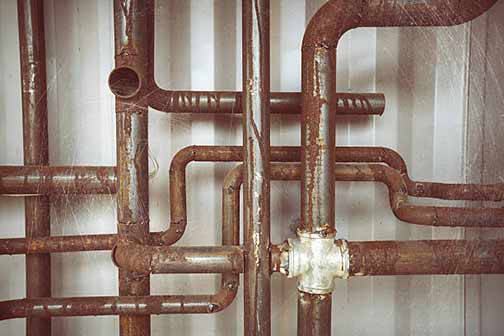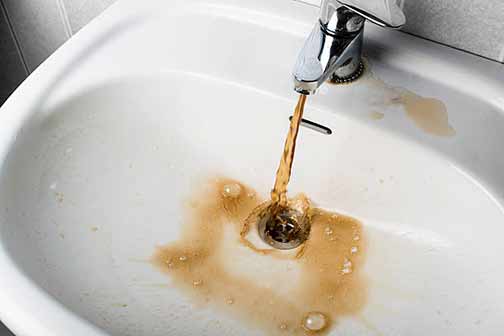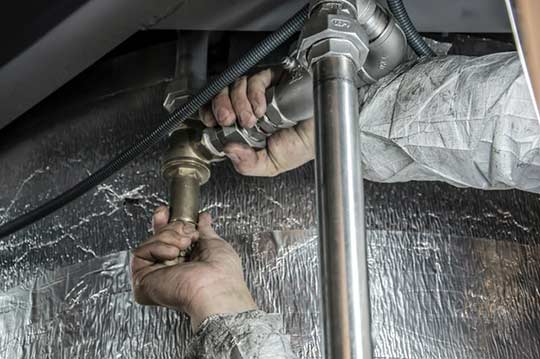
Pipes play a crucial role in our daily lives, providing us with clean water, carrying away waste, and ensuring the smooth functioning of our homes and businesses. However, the pipes that go unnoticed behind our walls and beneath our floors can pose a hidden danger if they are outdated or in poor condition. Here we will explore the risks associated with outdated pipes and why it is essential not to ignore this problem.
The Risks of Outdated Pipes
- Water Contamination: Outdated pipes are more susceptible to corrosion, leaks, and breakages, leading to potential water contamination. When pipes corrode, they can release harmful chemicals, such as lead, into the water supply. This contamination can have severe health consequences, especially for vulnerable populations like children and pregnant women.
- Structural Damage: Outdated pipes that develop leaks or bursts can cause significant structural damage to homes and buildings. Water seeping into walls, ceilings, and foundations can weaken the structure, leading to mold growth, rot, and even collapse in extreme cases. Repairing the resulting damage can be costly, disruptive, and time consuming.
- Reduced Water Pressure: Over time, outdated pipes may suffer from mineral buildup, rust, and corrosion, leading to reduced water pressure. Low water pressure can make daily tasks, such as showering or doing laundry, frustrating and time consuming. It can also affect the effectiveness of sprinkler systems, fire suppression systems, and other essential utilities.
- Inefficient Plumbing Systems: Outdated pipes may not be designed to meet the demands of modern plumbing systems. They may have narrower diameters, inadequate flow capacity, or outdated materials. This can result in clogs, backups, and inefficient water distribution throughout the property. Inefficient plumbing systems can lead to higher water bills and wasted resources.
Why Ignoring the Problem is a Mistake
Given the hidden nature of outdated pipes, many property owners may be tempted to overlook the issue or delay necessary repairs. However, ignoring the problem can have serious consequences:
- Health Risks: Water contamination due to outdated pipes can have severe health effects, ranging from gastrointestinal issues to long-term developmental problems, particularly in children exposed to lead. By addressing the problem proactively, you can safeguard the health and well-being of yourself, your family, employees, and customers.
- Financial Burden: Ignoring outdated pipes can lead to costly repairs in the future. What may seem like a minor issue today can quickly escalate into a full-blown plumbing emergency. By addressing the problem early on, you can avoid more extensive damage and save money on expensive repairs down the line.
- Legal Consequences: In some jurisdictions, property owners have a legal responsibility to maintain safe and adequate plumbing systems. Failure to address outdated pipes can result in fines, penalties, or even lawsuits. Taking proactive steps to assess and replace outdated pipes can help you meet legal requirements and protect yourself from potential legal trouble.

Discolored water may indicate the presence of rust or other contaminants, suggesting that the pipes are deteriorating and need attention.
Identifying Outdated Pipes
So, how can you determine if your property has outdated pipes that require attention? Here are some signs to look out for:
- Age: If your property is more than a few decades old and the plumbing system has never been updated, it is likely that you have outdated pipes. Even if there are no obvious issues, it is advisable to have a professional assessment to ensure the pipes are in good condition.
- Discolored Water: If you notice brown, yellow, or rusty water coming out of your taps, it could be a sign of corroded pipes. Discolored water may indicate the presence of rust or other contaminants, suggesting that the pipes are deteriorating and need attention.
- Frequent Leaks: If you are experiencing frequent pipe leaks or bursts, it is a clear indication that there is an underlying problem with your plumbing system. Outdated pipes are more prone to leaks and may require replacement to prevent further damage.
- Strange Odors: Foul or musty odors emanating from your drains or water supply can indicate that your pipes are deteriorating and need attention. These odors may be a result of mold growth or bacterial buildup within the pipes.
Addressing the Problem: Replacing Outdated Pipes
If you suspect that your property has outdated pipes, it is crucial to take action. Here are the steps to address the problem:
- Hire a Professional: Engage a licensed plumber who specializes in home repiping. They will have the expertise and equipment to accurately assess the condition of your pipes and recommend the appropriate actions.
- Conduct a Pipe Inspection: The plumber will conduct a thorough inspection of your plumbing system, including the identification of outdated pipes, leaks, or other issues. This inspection may involve visual examination, pressure testing, or the use of advanced technologies like video pipe inspection.
- Develop a Replacement Plan: Based on the inspection findings, the plumber will develop a detailed replacement plan. This plan will outline the scope of work, estimated costs, and the proposed timeline for completing the pipe replacement.
- Execute the Replacement: Once the replacement plan is in place, the plumber will proceed with replacing the outdated pipes. This may involve replacing individual sections of pipe or a complete overhaul of the plumbing system, depending on the extent of the problem.
- Regular Maintenance: After the replacement, it is crucial to follow a regular maintenance schedule to ensure the longevity and efficiency of your new pipes. This may include periodic inspections, cleaning, and preventive measures to prevent future issues.
Outdated pipes can pose significant risks to both the health and structural integrity of your property. By understanding these hidden dangers and taking proactive measures to address them, you can protect yourself, your family, and your financial investments. Don’t ignore the problem—speak with a professional plumber, identify outdated pipes, and ensure the safety and efficiency of your plumbing system.
